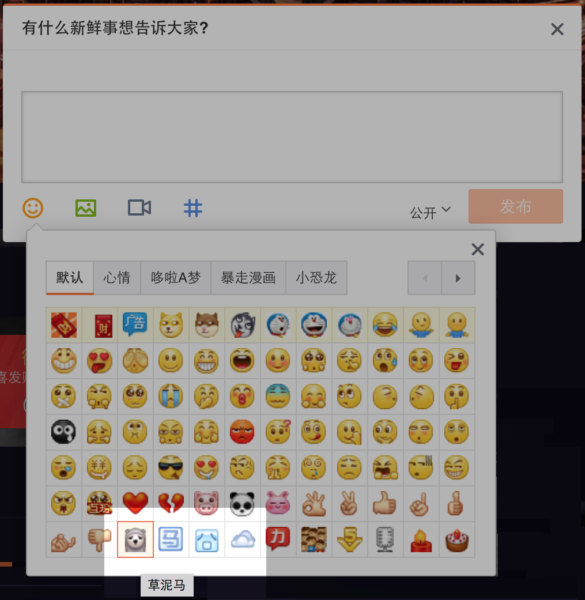Has the Grass Mud Horse been defanged?

A few years ago, I observed a curious addition to the emoji set on Sina Weibo: a Grass Mud Horse. It was a little confusing to me at the time, as I’d understood the subversive llama to be just that: a subversive mascot against internet censorship, complete with its own wacky theme song.
On WeChat, I also found an official sticker set that features the “Choco Milk Alpaca”, a remarkably grass mud horse-looking creature with cutesy adventures and and emotions. It’s not explicitly the Cao Ni Ma, but it even has a “Swear” sticker, which utters censored profanities. It’s easy to imagine it saying “F your mother,” like the original meme.
In a recent talk at the Shorenstein Center, tech theorist and social movement scholar Zeynep Tufekci pointed out that, rather than overt censorship, governments are turning to social media to spread confusion and reshape narratives by overwhelming the internet with a plethora of other narratives. Censorship these days is too easy to evade on the internet; rather, it’s through confusion that they maintain a certain form of power:
“[Governments] have learned that they can counter with the same methods by focusing on narrative capacity. They used to censor, and they don’t really censor as efficiently now. What they do instead is drown you in information…you can’t tell what’s what…I’ve got tons of friends in Turkey, internet’s not cut—I can’t tell what’s going on half the time…despite cell phones in a million people’s hands in the region, because every claim is met with ‘oh it’s a hoax,’ there is misinformation…if you’re in power, all you have to do is paralyze people and confuse them, or create enough challenges to credibility.”
Is the grass mud horse defanged? Has it been coopted? This is highly speculative right now, but it seems to be so: its very existence on official Chinese social media platforms suggests that it no longer holds the subversive qualities that propelled it to fame back in 2009. Yes, it’s still a profane pun, and yes, it could still be selectively censored. Rather than censoring the word wholesale, it is censored only sometimes – thus ensuring only its harmless meaning is propagated widely.
To be clear, the meme still has its subversive meaning and origins. But for many users of the meme, who see it mainly in emoji sets, they may only know it now as a puerile pun, or a cute llama. Its murky origins will remain so through sheer cooptation and confusion – and fewer and fewer will know the grass mud horse as a political mascot against the government’s policy of censoring the internet.
This article originally appeared on Tumblr.
Hi An Xiao, I have been researching and writing about this for my PhD. http://www.justinepoplin.com/blog/